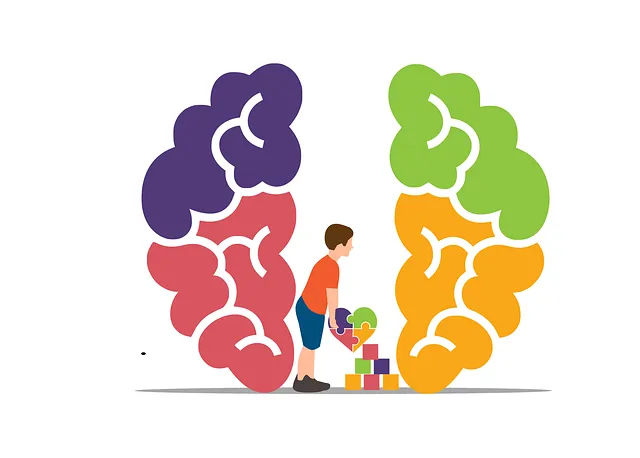Highlands Ranch Kaiser Permanente's mental health services tackle substance abuse risks through comprehensive assessments integrating genetic predispositions, environmental factors, and emotional well-being. They offer evidence-based practices like CBT, group therapy, and MAT, combined with cultural competency training and personalized risk assessment tools. Their holistic approach, including journaling, counseling, and resilience building, empowers individuals to manage stress, regulate emotions, and build positive relationships, preventing relapse and fostering long-term recovery. Early intervention strategies, community support networks, and tailored techniques reduce substance abuse, promoting mental wellness and a recovery-friendly environment.
In the United States, substance abuse poses significant risks, with Highlands Ranch Kaiser Permanente reporting a rising trend in related health issues. This article delves into comprehensive strategies for risk reduction, focusing on understanding the complexities of substance abuse and its impact. We explore critical components such as mental health services, early intervention, evidence-based treatment, rehabilitation, and community support networks. By integrating these approaches, communities can build resilience against substance abuse, ensuring a healthier future for all.
- Understanding Substance Abuse Risks: A Comprehensive Overview
- The Role of Mental Health Services in Risk Mitigation
- Strategies for Early Intervention and Prevention
- Evidence-Based Approaches to Treatment and Rehabilitation
- Community Support Networks: Building Resilience Against Substance Abuse
Understanding Substance Abuse Risks: A Comprehensive Overview

Substance abuse risks are multifaceted and deeply intertwined with an individual’s emotional well-being. Understanding these risks involves recognizing the complex interplay between genetic predispositions, environmental factors, and mental health conditions. According to Highlands Ranch Kaiser Permanente mental health services data, substance abuse often co-occurs with other psychiatric disorders, highlighting the necessity of a comprehensive Risk Assessment for Mental Health Professionals. This assessment must consider not just the presence of substances in an individual’s system but also their underlying emotional healing processes.
The Emotional Healing Processes play a crucial role in mitigating risks associated with substance abuse. By integrating evidence-based practices and utilizing resources like the mental wellness podcast series production, professionals can effectively support individuals in managing stress, trauma, and other contributing factors. This holistic approach not only addresses the symptoms of addiction but also fosters lasting mental wellness, ensuring that individuals are better equipped to resist future substance abuse risks.
The Role of Mental Health Services in Risk Mitigation

Highlands Ranch Kaiser Permanente mental health services play a pivotal role in mitigating risks associated with substance abuse. Beyond providing therapy and counseling, these services focus on holistic approaches that address underlying mental health conditions, often co-occurring with addiction. By integrating evidence-based practices like emotional intelligence training and compassion cultivation, individuals gain valuable skills to manage stress, regulate emotions, and cultivate positive relationships—all essential components of mental wellness.
This proactive approach not only reduces the likelihood of substance abuse relapses but also fosters long-term recovery. Mental health professionals at Kaiser Permanente Highlands Ranch employ various techniques tailored to individual needs, promoting mental resilience and enhancing coping strategies. Ultimately, these services empower individuals to lead healthier, more fulfilling lives by nurturing their emotional intelligence and cultivating a deeper sense of well-being.
Strategies for Early Intervention and Prevention

Early intervention is a powerful strategy to prevent substance abuse, and organizations like Highlands Ranch Kaiser Permanente play a vital role in mental health services. By reaching out to individuals at-risk or those showing initial signs, they can provide crucial support and guidance. This proactive approach focuses on educating people about substance misuse, its impact on mental wellness, and offering solutions before it escalates. For instance, mental health professionals can utilize journaling exercises as a tool for self-reflection, helping clients identify triggers and emotions that might lead to unhealthy coping mechanisms.
Additionally, promoting emotional intelligence and resilience building through counseling sessions or group therapy can empower individuals to make healthier choices. These strategies aim to strengthen an individual’s ability to manage stress, regulate emotions, and build a positive mental wellness journal, all of which contribute to long-term risk reduction. The goal is to foster a proactive mindset, enabling people to take charge of their mental health and well-being, thus preventing the onset of substance abuse disorders.
Evidence-Based Approaches to Treatment and Rehabilitation

Highlands Ranch Kaiser Permanente mental health services play a pivotal role in addressing substance abuse issues through evidence-based approaches. These methods are backed by extensive research and have proven effective in treating various forms of addiction. One such approach is cognitive-behavioral therapy (CBT), which helps individuals identify and change negative thought patterns and behaviors associated with drug or alcohol use. This form of therapy encourages clients to develop healthier coping mechanisms, enhance their problem-solving skills, and build resilience against cravings.
Additionally, integrated treatment models that combine mental health services with substance abuse rehabilitation have shown significant success rates. These programs often include individual counseling, group therapy sessions, medication-assisted treatment (MAT), and support groups. By addressing underlying mental health conditions alongside substance abuse, individuals can achieve long-term recovery. The healthcare provider’s cultural competency training is crucial in delivering these services effectively, ensuring sensitivity to diverse backgrounds and fostering trust between patients and mental health professionals. Risk assessment tools are also implemented to gauge the severity of addiction and tailor interventions accordingly, while resilience building techniques empower individuals to navigate challenges and maintain their sobriety.
Community Support Networks: Building Resilience Against Substance Abuse

Community Support Networks play a pivotal role in mitigating substance abuse within Highlands Ranch communities. Organizations like Kaiser Permanente’s mental health services offer valuable resources, fostering resilience and empathy building strategies among residents. By connecting individuals to supportive peers and professionals, these networks create an environment conducive to recovery and wellness.
Encouraging self-care routine development for better mental health and implementing stress reduction methods are integral components of these support systems. They empower individuals with tools to navigate challenges, build coping mechanisms, and maintain long-term sobriety. Through collective efforts, community support networks in Highlands Ranch aim to break down barriers to recovery and promote a healthier, more resilient society.
Substance abuse poses significant risks, but a multi-faceted approach can effectively reduce these hazards. By integrating mental health services, implementing early intervention programs, adopting evidence-based treatments, and fostering strong community support networks, we can create a resilient environment that prevents abuse and promotes recovery. For those seeking help, the Highlands Ranch Kaiser Permanente mental health services number offers a crucial resource, providing access to specialized care tailored to individual needs. Together, these strategies can lead to a healthier, safer society where substance abuse is better managed and individuals have the support they need to thrive.






